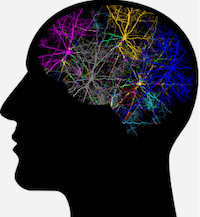Video
Managing Epilepsy: Parting Advice for Neurologists
Rodney A. Radtke, MD: Adult neurologists in the community taking care of intellectually disabled patients frequently don’t know the history of the patient. The patient develops seizures at age 3 and has lifelong seizures. Many times, they are not a good source of history because of intellectual limitations, and many times they may not be cared for by the same caregivers when you inherit them. I find it very valuable to try to reach out to family and try to understand their condition, try to understand what syndrome they may represent that may or may not have been diagnosed. And I think that’s important to identify: This is a grown-up patient with Lennox-Gastaut syndrome, this is a grown-up patient with Dravet syndrome. And so getting the history surrounding the clinical presentation in childhood is very helpful. And then that can sometimes guide your treatment. You’re more likely to use these new drugs that we’ve talked about that may be specifically more effective for Lennox-Gastaut or Dravet. And then it also may lead you to do genetic testing that may provide some answers that were missed 20 or 30 years ago; but we have answers available to us now because of progress and genetic testing.
We’ve been talking about all the new treatments that are available and up and coming that may have a significant impact on treatment of various epilepsy patients or epilepsy syndromes. One thing I do want to emphasize, though, is that it’s important as neurologists to focus on seizures and seizure counts. And while that’s important, and the improvement in quality of life is closely correlated to achieving seizure freedom, in other settings quality of life may be closely associated to avoiding adverse events or avoiding depression and anxiety or exacerbating those. And so it’s important to look at the patient in total, trying to maximize the patient’s quality of life—not just eliminate seizures but maximize quality of life in terms of alertness, day-to-day function, and emotional health that sometimes we lose track of as we’re focusing just on seizure counts.
Transcript edited for clarity.





